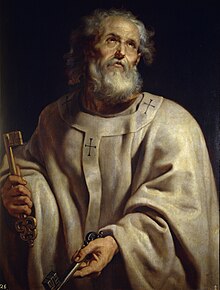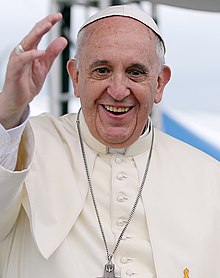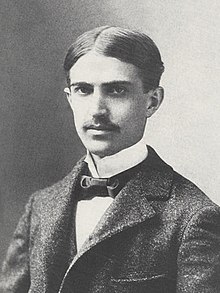Prefix / Root / Suffix
cardi-: heartcardinal (n.) Roman Catholic Church. a high ecclesiastic appointed by the pope to the College of Cardinals and ranking above every other ecclesiastic but the pope
example: I've had dinner with Bill and Cardinal Smith.
cardiac (adj.) of or relating to the heart
example: Mandy has a cardiac disease.
mega-: big
megalomania (n.) a symptom of mental illness marked by delusions of greatness, wealth, etc
example: The dictator was suffering from megalomania.
megastar (n.) a very well-known personality in the entertainment business
example: Jolin is a megastar in Taiwan.
post-: behind
postdate (v.) to follow in time
example: His recognition as an artist postdated his death.
postpone (v.) to put off to a later time; defer
example: People should postpone private gain to the public welfare.
trans-: across
transcend (v.) to rise above or go beyond; overpass; exceed
example: Human should always transcend their limits.
transcript (n.) a written, typewritten, or printed copy
example: A transcript of the tapes was presented as evidence in court.
nano-: extremely small
nanotechnology (n.) a technology executed on the scale of less than 100 nanometers, the goal of which is to control individual atoms and molecules
example: Nanotechnology bears a special burden.
hyper-: over / beyond
hyperactive (adj.) (of children) displaying exaggerated physical activity sometimes associated with neurologic or psychologic causes
example: He was a slow developer and hyperactive.
hypertension (n.) excessive or extreme emotional tenseness
example: Hypertension is not an unusual occurrence in the PACU.
hypo-: under
hypodermic (adj.) characterized by the introduction of medicine or drugs under the skin
example: He was frightened at seeing the hypodermic needle.
hypocrisy (n.) the practice of professing standards, beliefs, etc, contrary to one's real character or actual behaviour, esp the pretence of virtue and piety
example: I have no brow of such worldly hypocrisy.
hypochondria (n.) excessive worry or talk about one's health
example: We know the only thing more hopeless than his hypochondria is his romanticism.
ndum-: to be done
referendum (n.) the principle or practice of referring measures proposed or passed by a legislative body to the vote of the electorate for approval or rejection.
example: Many people abstained in the referendum.
memorandum (n.) a short note designating something to be remembered, especially something to be done or acted upon in the future; reminder
example: He sent us a memorandum about the meeting.
Stigma
A term used by members of the Christian faith to describe body marks, sores, or sensations of pain in locations corresponding to the crucifixion wounds of Jesus Christ, such as the hands, wrists, and feet causing extreme pain and torrid affect of humiliation. An individual bearing the wounds of Stigmata is referred to as a Stigmatist.
 >>St. Francis of assisi
>>St. Francis of assisi
An Italian Roman Catholic friar and preacher. He founded the men's Order of Friars Minor, the women’s Order of Saint Clare, the Third Order of Saint Francis and the Custody of the Holy Land. Francis is one of the most venerated religious figures in history.Pope
The Bishop of Rome and the leader of the worldwide Catholic Church. The primacy of the Roman bishop is largely derived from his role as the traditional successor to Saint Peter, to whom Jesus is supposed to have given the keys of Heaven and the powers of "binding and loosing", naming him as the "rock" upon which the church would be built. The current pope is Francis, who was elected on 13 March 2013, succeeding Benedict XVI.>>St. Peter
 According to the New Testament, Saint Peter was one of the Twelve Apostles of Jesus Christ, leaders of the early Christian Church. The Roman Catholic Church considers him to be the first Pope, ordained by Jesus in the "Rock of My Church" dialogue in Matthew 16:18. The ancient Christian churches all venerate Peter as a major saint and associate him with founding the Church of Antioch and later the Church in Rome, but differ about the authority of his various successors in present-day Christianity.
According to the New Testament, Saint Peter was one of the Twelve Apostles of Jesus Christ, leaders of the early Christian Church. The Roman Catholic Church considers him to be the first Pope, ordained by Jesus in the "Rock of My Church" dialogue in Matthew 16:18. The ancient Christian churches all venerate Peter as a major saint and associate him with founding the Church of Antioch and later the Church in Rome, but differ about the authority of his various successors in present-day Christianity.Key of Heaven
In the Gospel of Matthew 16:19, Jesus says to Peter, "I will give you the keys of the kingdom of heaven, and whatever you bind on earth shall be bound in heaven, and whatever you loose on earth shall be loosed in heaven.">>Pope Benedict XVI
 Pope of the Catholic Church from 2005 until his resignation in 2013. On 11 February 2013, Benedict announced his resignation in a speech in Latin before the cardinals, citing a "lack of strength of mind and body" due to his advanced age. His resignation became effective on 28 February 2013. He is the first pope to resign since Pope Gregory XII in 1415, and the first to do so on his own initiative since Pope Celestine V in 1294. As pope emeritus, Benedict retains the style of His Holiness, and the title of Pope, and continues to dress in the papal color of white. He was succeeded by Pope Francis on 13 March 2013, and he moved into the newly renovated Mater Ecclesiae monastery for his retirement on 2 May 2013.
Pope of the Catholic Church from 2005 until his resignation in 2013. On 11 February 2013, Benedict announced his resignation in a speech in Latin before the cardinals, citing a "lack of strength of mind and body" due to his advanced age. His resignation became effective on 28 February 2013. He is the first pope to resign since Pope Gregory XII in 1415, and the first to do so on his own initiative since Pope Celestine V in 1294. As pope emeritus, Benedict retains the style of His Holiness, and the title of Pope, and continues to dress in the papal color of white. He was succeeded by Pope Francis on 13 March 2013, and he moved into the newly renovated Mater Ecclesiae monastery for his retirement on 2 May 2013.
 >>Pope Francis
>>Pope Francis
The 266th and current Pope of the Roman Catholic Church. Following the resignation of Pope Benedict XVI on 28 February 2013. He chose Francis as his papal name in honor of Saint Francis of Assisi. Throughout his public life, Pope Francis has been noted for his humility, emphasis on God's mercy, concern for the poor, and commitment to interfaith dialogue. He is credited with having a humble, less formal approach to the papacy than his predecessors, for instance choosing to reside in the Domus Sanctae Marthae guesthouse rather than in the papal apartments of the Apostolic Palace used by his predecessors. Stephen Crane
 Stephen Crane (November 1, 1871 – June 5, 1900) was an American poet, novelist, and short story writer. Prolific throughout his short life, he wrote notable works in the Realist tradition as well as early examples of American Naturalism and Impressionism. He is recognized by modern critics as one of the most innovative writers of his generation.
Stephen Crane (November 1, 1871 – June 5, 1900) was an American poet, novelist, and short story writer. Prolific throughout his short life, he wrote notable works in the Realist tradition as well as early examples of American Naturalism and Impressionism. He is recognized by modern critics as one of the most innovative writers of his generation.The ninth surviving child of Protestant Methodist parents, Crane began writing at the age of four and had published several articles by the age of 16. Having little interest in university studies, he left college in 1891 to work as a reporter and writer. Crane's first novel was the 1893 Bowery tale Maggie: A Girl of the Streets, generally considered by critics to be the first work of American literary Naturalism. He won international acclaim in 1895 for his Civil War novel The Red Badge of Courage, which he wrote without having any battle experience.
The Red Badge of Courage is a war novel by American author Stephen Crane (1871–1900). Taking place during the American Civil War, the story is about a young private of the Union Army, Henry Fleming, who flees from the field of battle. Overcome with shame, he longs for a wound, a "red badge of courage," to counteract his cowardice. When his regiment once again faces the enemy, Henry acts as standard-bearer.
沒有留言:
張貼留言